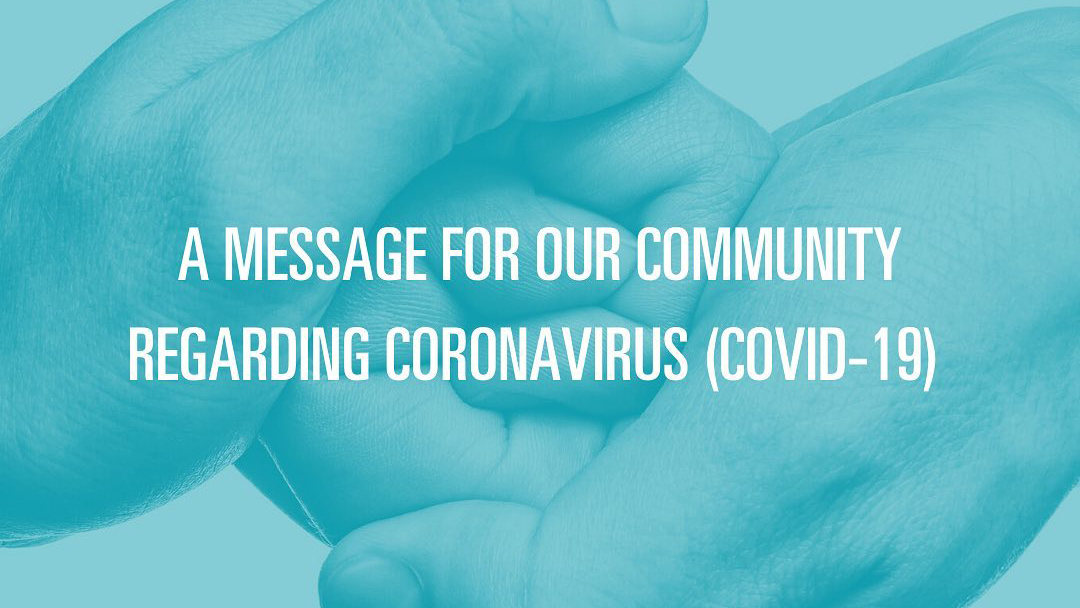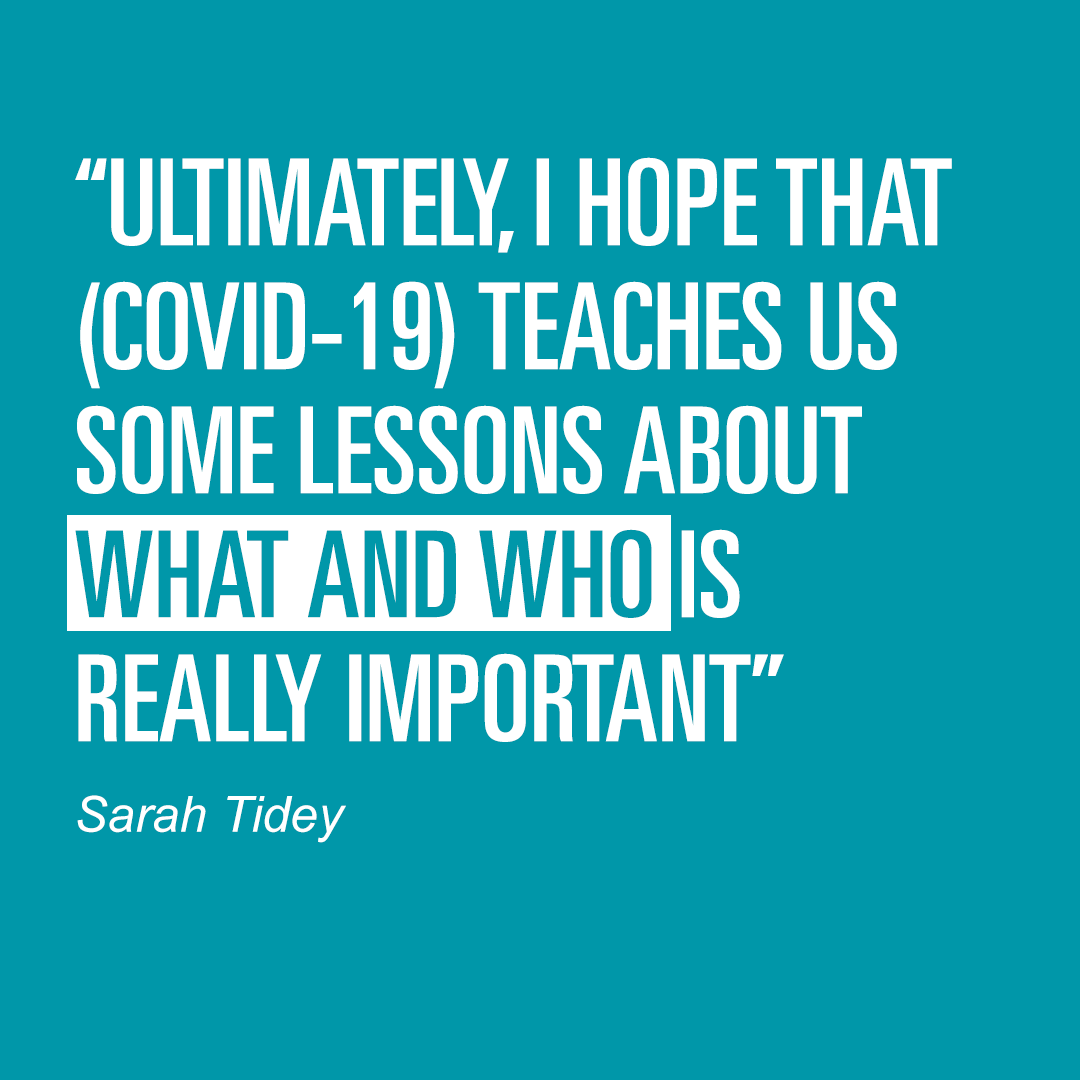Sarah Tidey is a freelance writer and former lawyer who was diagnosed with ovarian cancer in October 2015. She is currently having her fourth line of chemotherapy. She lives in Melbourne with her husband and three children aged 20, 18 and 16.

After four years on the ovarian cancer rollercoaster, I didn’t think there was much more that could be thrown at me health-wise. Surgery, chemotherapy, nausea, rashes, infections, hair loss… it's been a fairly comprehensive assault. Now the wretched Coronavirus has hit town and changed the game again.
Yet in a strange way, I feel the last four years have prepared me well…
The physical risk
We cancer folk know we are ‘high risk’. I feel vulnerable. I am four rounds into my fourth line of chemotherapy. I’ve already had a week in hospital in January after picking up an infection.
Whilst the term ‘social distancing’ is new to me, the concept is not.
One of the advantages of being a cancer patient (and let’s face it, that’s not a phrase you hear very often) is that we are accustomed to being vigilant about our health. I have become good at keeping away from sick people, not attending big events, resting during the day, and practising good hygiene like washing hands and not sharing food. Doing all that now doesn’t seem that hard.
The tricky part is my family is actually my greatest exposure. My two daughters are at university and have been coming and going to part time jobs and outings with friends – it’s hard asking them to wind back their social lives. My 16-year old son is studying from home as his school has closed. He has a ghastly cough and it’s nerve wracking having him hacking away in the same house. My instinct as a mother is to want to kiss and cuddle him but that’s not a good idea at the moment. I’ve had to ask others to take him to doctors’ appointments as I can’t risk being in the GP’s waiting room.
I am not working much but I’m lucky the writing work I do can be done at home. Before my next chemo I will make sure I have some meals ready to go. With home delivery from the supermarkets suspended I have turned to my local milk delivery service for the basics – milk, bread and fruit. I will send my husband and the kids to the supermarket. I know not everyone has family to help, but this is the time to ask friends or neighbours or call community services.
The mental risk
The physical impact of an ovarian cancer diagnosis is brutal, but the mental side of it has been just as challenging. Ovarian cancer is relentless and it’s a challenge staying positive and hopeful. It’s going to be the same with the Coronavirus.
I keep reminding myself that I’ve already survived some pretty terrible stuff, and just like undergoing chemo, the situation is temporary. Four years in the cancer world has given me lots of patience.
When the situation first began to escalate, I felt quite anxious as the news was constantly changing and I felt bombarded by information. I’ve since decided to cut back on reading too much media, including social media. I just need to know the symptoms of Coronavirus, how to manage the risk to myself and what the current restrictions are on gatherings, etc. No one needs to be reading reports about numbers of deaths or people’s poor behaviour.
Managing other people’s anxieties can also be a challenge. I’ve had a number of kind and well-meaning friends contact me commenting about how stressed I must be or citing the statistics around people with cancer. This only makes me nervous. Practical offers of assistance and regular phone calls are much appreciated. To the friends who delivered toilet rolls - eternal gratitude!
Finding some distractions is important.
Some of the things I’d like to do include cooking, meditating, doing an online exercise class, watching my favourite movies, reading books, sorting out old photos, cleaning out cupboards, doing some sewing, maybe writing some ‘old school’ letters to friends in far flung places. I’m enjoying talking on the phone rather than texting. Catching up on the news from isolated friends and family members and the community I would usually be spending time with. There is a Facebook chat group for ovarian cancer patients or support groups if I want to tune in there.
I am looking for a laugh. I’m asking for recommendations for funny movies. I’m watching stupid YouTube clips with my kids. A friend and I have been sending each other little jokes and video clips.

The bigger picture
One of the greatest things that ovarian cancer has given me is perspective. Yes, I’m at risk but I’m lucky enough to be home with the support of my family. This experience is tough for cancer patients, but also for so many other people – elderly people living alone, those trying to keep small businesses alive, or keep their jobs, others with underlying health conditions, those with high anxiety. I feel better when I can help others too – whether it be by supporting their small businesses, sharing things that I have, chatting with neighbours living alone or calling to check in on people.
We are all in this together.
I’m trying to see this as an opportunity to pare life back to its fundamentals – what’s most important right now is to love those around me and take care of our health. I hope that we can emerge from this experience safely. Ultimately, I hope that it teaches us some lessons about what and who is really important.
Supporting our community
At OCRF, supporting the health and wellbeing of our community is - and always has been - our top priority.
If you are immunocompromised, we understand this could increase your risk of contracting the virus, and we hope you are taking extra care in accordance with the advice of the government and healthcare professionals in your state.
If you have a fundraising event planned, we understand that you may need to postpone the event in line with social distancing recommendations. Feel free to reach out to our team if you need any support or advice.
Please remember to stay connected and look out for others, even if you can’t attend events and social gatherings. Technology is a great way to keep us in touch with our loved ones during times like these.
Stay up to date with the latest information at health.gov.au and take care of each other.